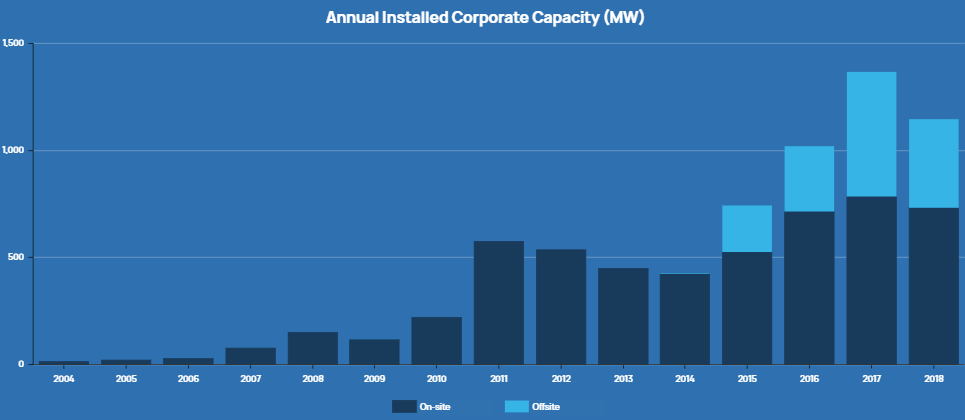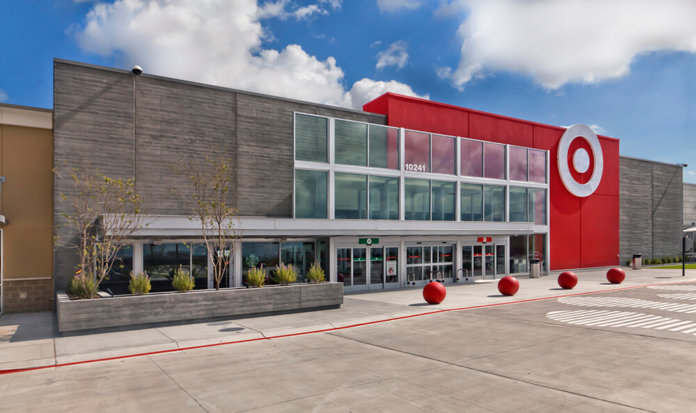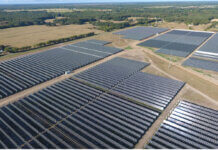In a new report, the Solar Energy Industries Association (SEIA) puts corporate commitments to clean energy on display, with tech and retail brands such as Apple, Amazon, Target, Walmart and Google leading the way in the U.S.
The new report, Solar Means Business 2018, contains data from both on-site and off-site installations, tracking more than 7,000 MW of installed solar capacity across 35,000 projects – up from 2,500 MW and 7,000 projects in SEIA’s 2017 report.
In terms of overall rankings for corporate solar procurement (on-site and off-site), Apple takes the top spot with 393.3 MW. For just on-site solar, Target is in first with 229.7 MW.


“Playing a significant role in helping to reduce the sources of human-induced climate change is an important commitment for Amazon,” notes Kara Hurst, director of sustainability at Amazon. “Major investments in renewable energy are a critical step toward addressing our carbon footprint globally. We will continue to invest in these projects and look forward to additional investments this year and beyond.”
“Prologis was among the first in the logistics real estate industry to invest in solar, and our future-focused approach to environmental, social and governance practices has put us on pace to surpass our goal of 200 MW of solar capacity by 2020,” comments Matt Singleton, senior vice president of global energy at Prologis. “We are honored to be recognized for our efforts to deliver value to our customers and minimize our environmental impact through our renewable energy program.”
According to SEIA, falling prices and more flexible financing and procurement structures have led to rapid growth in corporate solar adoption in recent years, as shown below:

This seventh edition of SEIA’s Solar Means Business report notes that each week, 6.6 million people visit a Walmart store with on-site solar, and Apple’s solar facilities generate enough electricity each year to charge more than 60 billion smartphones.
“Top companies are increasingly investing in clean, reliable solar energy because it makes economic sense,” says Abigail Ross Hopper, president and CEO of SEIA. “During the Solar+ Decade, corporate solar investments will become even more significant as businesses use solar to fight climate change, create jobs and boost local economies. When global brands go solar, the rest of the world takes note, and this report puts the power of corporate solar investment on full display.”
In conjunction with this report, SEIA is hosting its annual Solar Goes Corporate event on Nov. 7, when SEIA will present awards to the top companies highlighted in the report.




